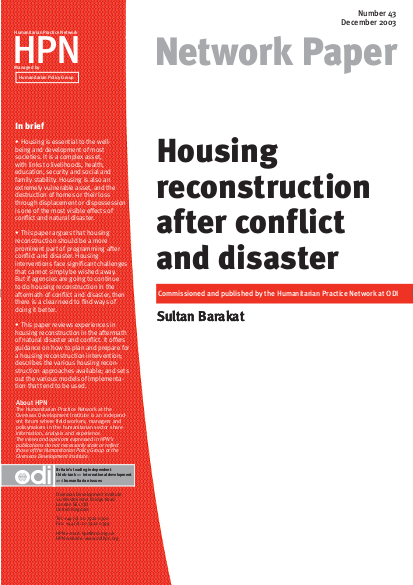
This paper argues that housing reconstruction should be a
more prominent element in post-conflict and post-disaster
programming than is currently the case. There is no
agency devoted to housing reconstruction, and very few of
the major NGOs working in relief would claim to specialise
here. Where reconstruction programmes are attempted,
the particular challenges that they pose tend to be underestimated;
planning is often poor and coordination
between agencies difficult. Opportunities to enhance postdisaster
recovery efforts or introduce mitigation measures
are usually overlooked, and little or no distinction is made
between the provision of physical shelters and the provision
of homes. Lack of experience leads to assessments
that do not provide the relevant information, and projects
that are impractical and appropriate neither to what beneficiaries
need, nor to what they want. As a result, reconstruction
projects are often unsustainable: at best, houses
are remodelled by their occupants; at worst, they are
simply rejected and abandoned.